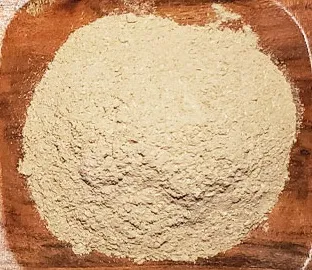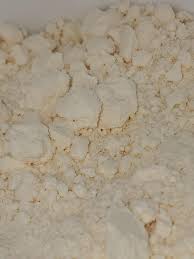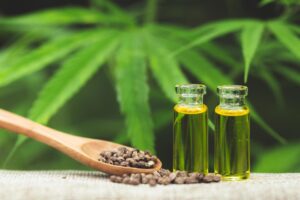The cannabis industry has seen remarkable growth and innovation in recent years, introducing a plethora of products that cater to diverse preferences and needs. Among these products, Delta 8 powder and traditional concentrates have gained significant attention. But how do they compare? This comprehensive guide explores the differences between Delta 8 powder and traditional concentrates, helping you decide which option best suits your requirements.
Understanding Delta 8 Powder
Delta 8 powder is a relatively new entrant in the cannabis market, offering a unique way to experience the benefits of Delta 8 THC. Delta 8 is a minor cannabinoid derived from hemp or cannabis plants and is known for its milder psychoactive effects compared to Delta 9 THC. The powder form of Delta 8 provides a versatile and discreet method of consumption.
Delta 8 powder is typically created through a refinement process where Delta 8 THC is extracted and converted into a fine, water-soluble powder. This form makes it easy to incorporate into beverages, edibles, or even use directly. As a result, Delta 8 powder is gaining popularity among consumers seeking convenience and precision in their cannabis experience.
What Are Traditional Concentrates?
Traditional cannabis concentrates are highly potent extracts that come in various forms, such as wax, shatter, budder, and live resin. These products are made by extracting cannabinoids and terpenes from the cannabis plant, resulting in a dense, flavorful, and potent substance. Concentrates are typically consumed by dabbing, vaping, or incorporating them into edibles.
Traditional concentrates appeal to experienced cannabis users due to their high THC content and the robust entourage effect provided by the full spectrum of cannabinoids and terpenes. They are widely available in dispensaries and are often chosen by individuals seeking an intense and immediate high.
Comparing Delta 8 Powder and Traditional Concentrates
Potency
When comparing Delta 8 vs. concentrates, potency is a crucial factor. Traditional concentrates often contain THC levels ranging from 60% to 90%, delivering a powerful psychoactive effect. In contrast, Delta 8 powder has a more moderate potency, offering THC levels that typically range from 10% to 40%.
This difference makes Delta 8 powder a preferred option for beginners or individuals who want to avoid the overwhelming effects of traditional concentrates. Conversely, seasoned cannabis users seeking a stronger experience often gravitate toward traditional concentrates.
Consumption Methods
Delta 8 powder stands out for its versatility. Its water-soluble nature allows it to be seamlessly integrated into drinks, food, or capsules, making it an excellent choice for those who dislike smoking or vaping. Additionally, its discreet appearance and lack of strong odor make it ideal for on-the-go use.
Traditional concentrates, on the other hand, require specific equipment like dab rigs or vaporizers for optimal use. While these methods deliver a fast-acting and intense experience, they may not be suitable for everyone, especially those new to cannabis or looking for a more low-key option.
Psychoactive Effects
One of the most notable distinctions between concentrates vs. Delta 8 is the nature of their psychoactive effects. Traditional concentrates produce a strong, sometimes overwhelming high due to their high Delta 9 THC content. This can be beneficial for recreational users or those managing chronic pain or severe medical conditions.
Delta 8 powder, however, offers a smoother and more controlled psychoactive experience. Its effects are often described as calming, clear-headed, and less likely to induce anxiety or paranoia. This makes Delta 8 powder a popular choice for individuals who want to enjoy the benefits of THC without the intensity associated with Delta 9.
Accessibility and Legal Status
The legal landscape for cannabis products is constantly evolving, and the availability of Delta 8 powder and traditional concentrates varies by location. In many states, Delta 8 THC products are legal under the 2018 Farm Bill, which permits the sale of hemp-derived products containing less than 0.3% Delta 9 THC.
Traditional concentrates, however, are typically subject to stricter regulations. They are often only available in states where recreational or medical cannabis use is legal. This makes Delta 8 powder a more accessible option for consumers in regions with restrictive cannabis laws.
Market Trends and White Label Opportunities
The rise of Delta 8 white label products has significantly influenced the cannabis market. White labeling allows businesses to customize and sell Delta 8 powder under their own brand, providing an opportunity to meet the growing demand for innovative and versatile cannabis products. This trend has opened doors for entrepreneurs looking to enter the industry with minimal investment in production facilities.
Traditional concentrates also offer white label opportunities, but the process can be more complex and costly due to the specialized equipment and expertise required for production. As a result, Delta 8 powder has become an attractive option for businesses aiming to capitalize on the cannabis market’s rapid expansion.

Health Considerations
When evaluating Delta 8 vs. concentrates, health considerations play a significant role. Delta 8 powder is often perceived as a safer option for consumption due to its lower potency and versatile application methods. It’s also less likely to irritate the lungs compared to smoking or dabbing traditional concentrates.
Traditional concentrates, while potent and effective, can pose risks for individuals with respiratory issues. Additionally, the high THC content in concentrates may lead to adverse effects like anxiety, paranoia, or increased heart rate in some users. It’s essential to start with small doses and consult a healthcare professional if needed.
Pricing and Value
The cost of Delta 8 powder and traditional concentrates varies widely depending on factors like quality, brand, and regional availability. Generally, Delta 8 powder is considered more cost-effective due to its moderate potency and versatility. Consumers can stretch their investment by incorporating the powder into various applications.
Traditional concentrates, while more expensive per gram, offer unmatched potency and flavor profiles. This makes them a worthwhile investment for experienced users seeking a premium cannabis experience.
The Verdict
Choosing between Delta 8 powder and traditional concentrates ultimately depends on your preferences, experience level, and intended use. Delta 8 powder is an excellent choice for those seeking a milder, more versatile, and accessible option. Its discreet and customizable nature makes it ideal for beginners and casual users.
Traditional concentrates, on the other hand, are better suited for experienced cannabis enthusiasts who prioritize potency and a robust flavor profile. Their intense effects and rapid onset make them a go-to choice for recreational and medicinal users alike.
As the cannabis market continues to evolve, both Delta 8 powder and traditional concentrates offer unique advantages that cater to diverse consumer needs. By understanding the differences between these products, you can make an informed decision and enhance your cannabis experience.
Discover the future of cannabis products with NanoHempTechLabs! Our premium Delta 8 powder and traditional concentrates are crafted for quality and versatility, making them the perfect choice for your customers. Whether you’re looking for innovative Delta 8 white label solutions or potent traditional concentrates, we provide exceptional products to elevate your brand. Join the growing market trend with our expertly designed wholesale solutions tailored to meet your needs. Don’t miss out on this opportunity to expand your product line and boost your sales. Schedule a call with NanoHempTechLabs today and let us help you achieve success!
Reference:
- Kruger, D. and Krüger, J. (2023). Consumer experiences with delta-8-thc: medical use, pharmaceutical substitution, and comparisons with delta-9-thc. Cannabis and Cannabinoid Research, 8(1), 166-173. https://doi.org/10.1089/can.2021.0124
- Krüger, J. and Kruger, D. (2022). Delta-8-thc: delta-9-thc’s nicer younger sibling?. Journal of Cannabis Research, 4(1). https://doi.org/10.1186/s42238-021-00115-8
- Leas, E. (2021). The hemp loophole: a need to clarify the legality of delta-8-thc and other hemp-derived tetrahydrocannabinol compounds. American Journal of Public Health, 111(11), 1927-1931. https://doi.org/10.2105/ajph.2021.306499





